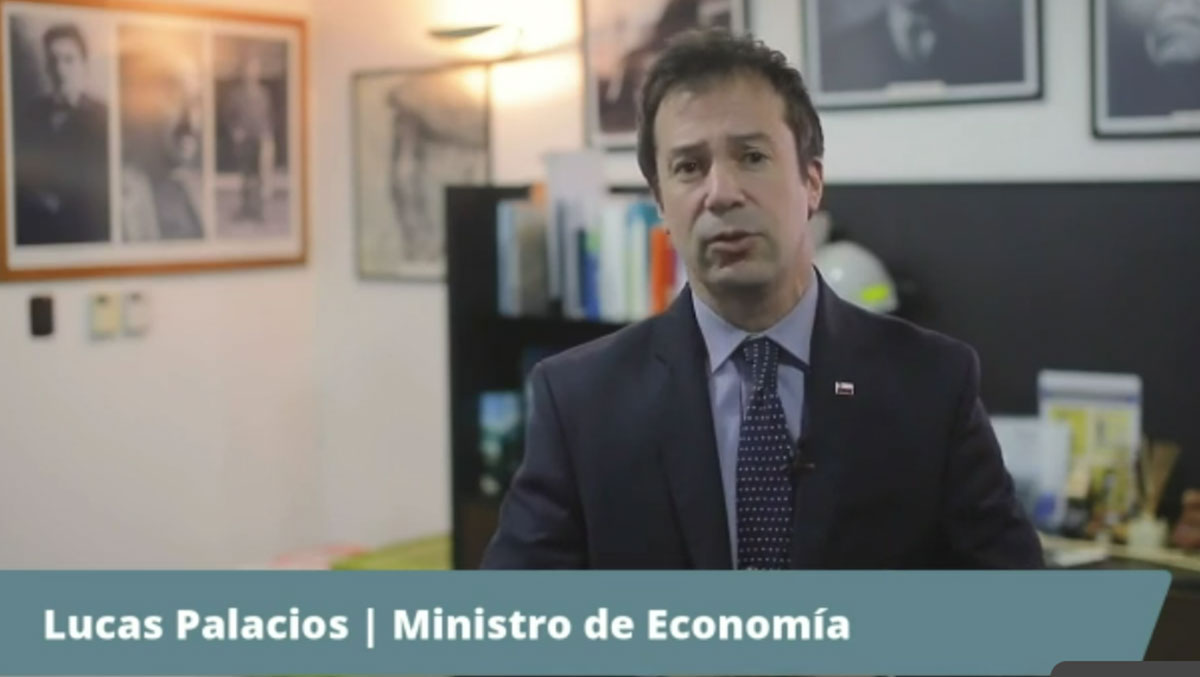
loading

loading
Don't miss the opportunity to participate in the largest aquaculture event in the Southern Hemisphere!


The Minister of Economy, Development and Tourism, Lucas Palacios, headed the launch of the new digital platform of AquaSur Connect, the most important aquaculture-fishing exhibition in the Southern Hemisphere.
The Minister of Economy, Development and Tourism, Lucas Palacios, headed the launch of the new digital platform of AquaSur Connect, the most important aquaculture-fishing exhibition in the Southern Hemisphere. The Secretary of State led the inauguration within the framework of the seminar: “The impulse of green trends in aquaculture”, which takes place in the prelude to what will be the hybrid exhibition (face-to-face and virtual) to be held between March 2 and 4, 2022 in Puerto Montt. The seminar, which was transmitted via streaming, was also attended by Alicia Gallardo, Undersecretary of Fisheries and Aquaculture; Joanna Davidovich, executive director of the Salmon Council; and Arturo Clément, president of SalmonChile. On the occasion, the Minister of Economy detailed that aquaculture is the third most important economic activity in Chile, with an exported value of almost US$ 5 billion in 2020, 955,000 tons, experiencing an increase of 13 % in volume, compared to 2019. Globally, Chile is the second largest producer of salmon, after Norway, the first trout producing country, the second largest producer and the first exporter of mussels. But he emphasized that aquaculture is not only volume but also generates more than 90,000 direct and indirect jobs at national level. In his words, Minister Palacios stressed that today “we must learn to live and produce in a sustainable way”. In this context, he said that “with regard to aquaculture, as in many activities, the call is not to stay out of the direction our world is taking. There is an increasing preference for ecologically and sustainably produced products, based on the conservation of natural resources, biodiversity and the mitigation of environmental impacts. So much so, that it is already possible to observe that there are “Green Consumers” and “Green Markets”, who choose products according to their environmental attributes”. The Secretary of State emphasized that “aquaculture has certain competitive advantages compared to other economic activities that produce food for human consumption, such as the constant availability of the product, consistent quality and that they can be produced sustainably. National aquaculture should not be left out. In fact, it is progressively incorporating, in its productive chain, different actions that point towards the concept of green trend: recycling, reuse, circular economy, beach cleaning campaigns, innovation, small-scale production, among other things”. Finally, he called “to continue on this path, taking care of our species and resources as a north. Thus, I take this opportunity to call on the industry to develop a distinctive brand that allows us to adapt to these trends and improve competitiveness in the markets. Only in this way will we be able to continue strengthening and projecting this industry into the future. Presentation and panel Alicia Gallardo, Undersecretary of Fisheries and Aquaculture, made a presentation on ocean policy and aquaculture with an ecosystemic vision. In this context, she said that “today aquaculture is not only production, but also sustainability, which has to do with the health of the oceans”. On the occasion, the authority said that “the key elements to move forward in this changing and dynamic world that comes post Covid have to do with advancing innovation through various technological processes, waste management, how to communicate with each other and disseminate what we are doing. Innovation is at the center of this world of green economies”. The panel discussion was attended by Esteban Szasz, senior vice president, DNB Santiago; Rohana Subasinghe, former chief of aquaculture branch of FAO department of fisheries and aquaculture and; Ricardo García, CEO Camanchaca S.A. At the meeting, Esteban Szasz said that “at a global level, investor preference today is migrating strongly to sustainable or green financing. Today it is easier to raise money in transactions with green or sustainable components, because public opinion in Europe has a lot of strength and influence on companies”. Rohana Subasinghe said that “in general, in the world, a person eats 20.5 kilos of fish in a year. Therefore, fish is an important commodity that feeds more than 3 billion people in this world and more than 20% of animal protein consumption. Fish is part of a sustainable diet. For his part, Ricardo García said that “the food source of the sea is not only being underused, but they are much more benign for the environment and for the planet than the alternatives. The responsibility we have is to do this carefully. Our way of working must not only fulfill the purpose of producing animals but also alert the world of the sustainable way we are doing it and in a responsible manner.